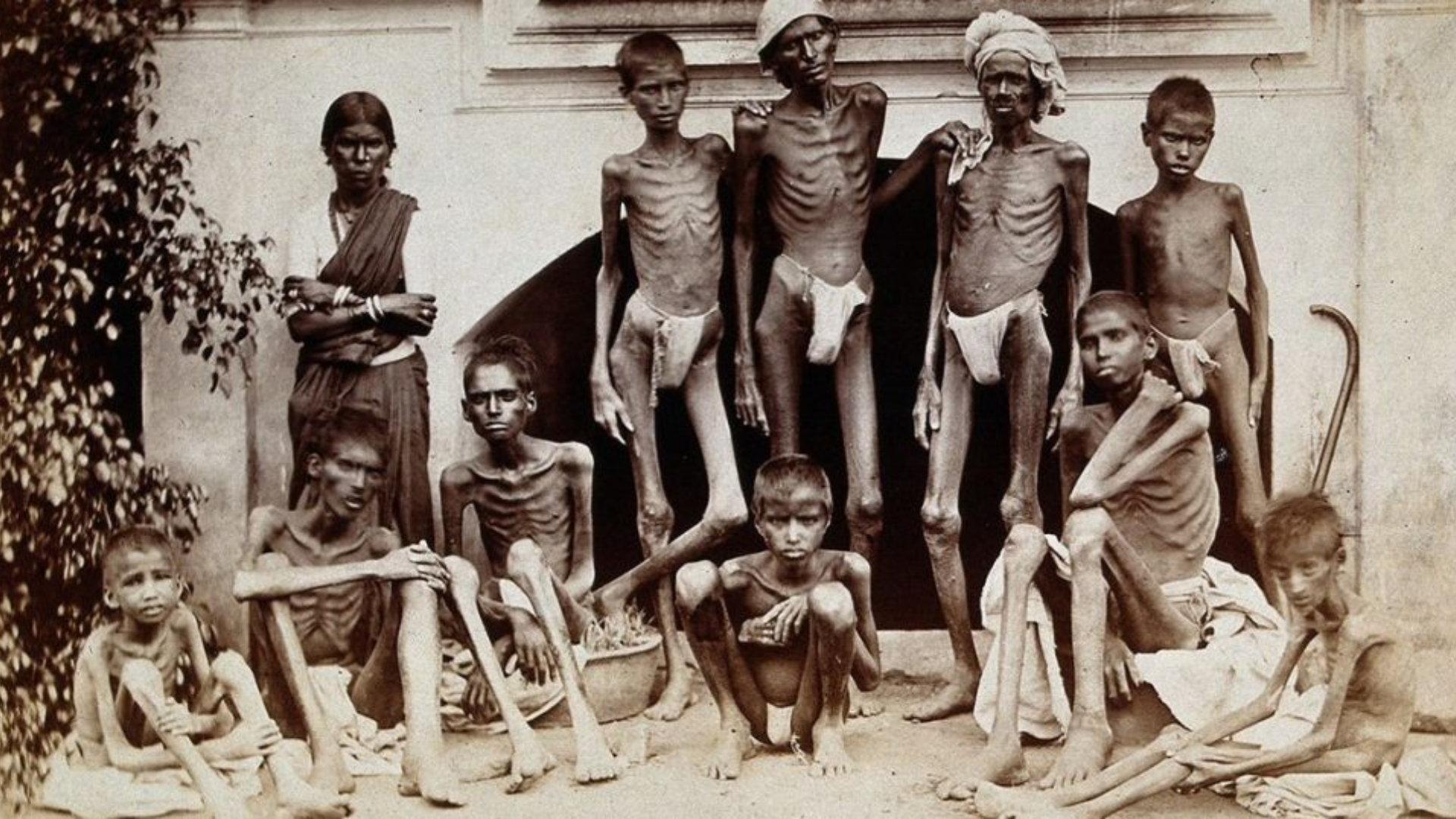

The Bengal Famine of 1943, which led to the tragic loss of over three million lives, was not caused by drought as commonly believed, but by significant policy failures of the British government. This is supported by new research conducted by scientists at IIT Gandhinagar, who analyzed 150 years of drought data to understand the true cause behind the catastrophe.
Historically, it has been acknowledged that various policy mistakes contributed to the famine’s severity. These included prioritizing the distribution of essential supplies to the military and civil services, halting rice imports, and the provincial government’s refusal to declare Bengal famine-stricken. However, for the first time, researchers have examined soil moisture records from 1870 to 2016 to reconstruct agricultural drought patterns and determine if drought was indeed responsible.
The study found that between 1935 and 1945, the Bengal region did not experience any drought, debunking the idea that the famine was caused by natural factors. Instead, the Bengal Famine of 1943 was a direct result of policy failures, particularly related to the ongoing pressures of World War II. These included the Japanese occupation of Burma, which halted rice imports, and the disruption of Bengal’s market supplies and transportation systems.
In previous famines, like the one in 1873-74, the British government took effective measures, such as importing food from Burma and providing timely relief, which significantly reduced mortality. However, during the 1943 famine, similar actions were not taken.
The government’s initial denial of the famine’s existence led to delayed and inadequate humanitarian aid. Attempts to control rice prices backfired, creating a black market and encouraging hoarding, which worsened the food crisis.
The study also highlights that other major famines in India during the period from 1870 to 2016 were linked to widespread droughts, except for the Bengal Famine of 1943. After Independence, improvements in irrigation, public distribution systems, rural employment, and transportation helped reduce the impact of droughts on people’s lives.
This comprehensive analysis of the history of droughts and famines in India aims to provide valuable insights for better preparedness in the future, ensuring that such tragedies are not repeated.
Winston Churchill, the British Prime Minister during World War II, is often criticized for his role in the Bengal Famine of 1943. His policies and decisions, such as prioritizing the war effort over providing relief to the famine-stricken region, have been widely condemned.
One of the most controversial remarks attributed to Churchill during this time was when he allegedly responded to the famine crisis by questioning why Mahatma Gandhi had not yet died. This comment is often cited as an example of Churchill’s indifference or even hostility towards India and its leaders, particularly during a period of immense suffering.
While some historians debate the accuracy and context of this remark, it remains a symbol of the British government’s perceived neglect and harsh attitude toward the Indian people during the famine.
A day after Trump announced new tariffs, Stellantis on Thursday said it has “paused production”…
Mohammed Qasim Ansari has stepped down from the primary membership of the Janata Dal (United)…
Oil prices plunged sharply on Thursday, with US crude futures falling 7% to $66.52 a…
The top court bench of Justice BR Gavai and Justice AG Masih noted that no…
President Trump declared that "the operation is over," claiming that the US economy would be…
Uttar Pradesh Deputy Chief Minister Keshav Prasad Maurya asserted on Thursday that the Waqf (Amendment)…